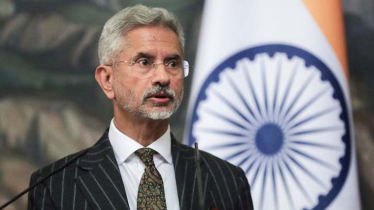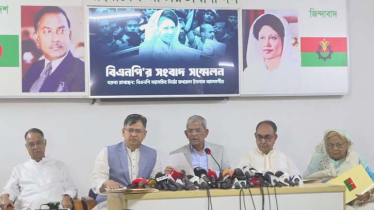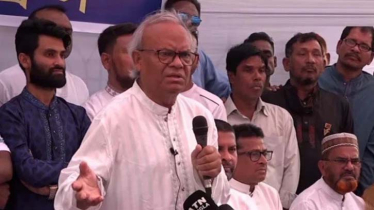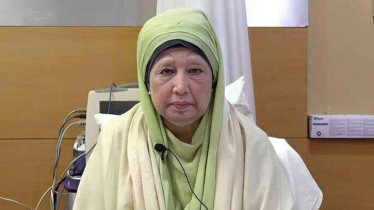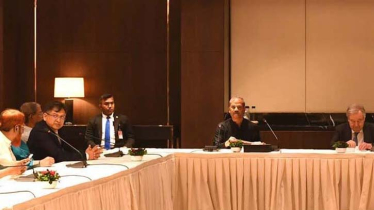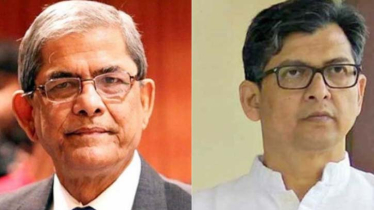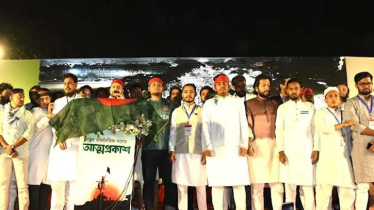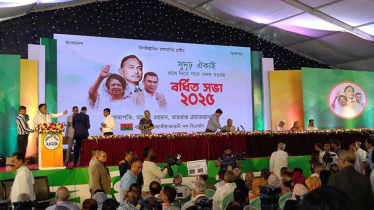
Photo : Courtesy
Amar Bangladesh Party, AB Party, called upon the state machineries to stand by the millions of flood victims in northern and north-eastern region of the country. Citizens living across the hundreds of sand beds and low lands have been severely affected by the ongoing third wave of fresh floods and torrential rain.
AB Party held a briefing on current floods and helping flood affected people of the country across the country. It was held on Monday (8 June) afternoon at its central office. Asaduzzaman Fuaad, a barrister-at-law and Joint Member Secretary of the party conducted the briefing; AFM Solaiman Chowdhury, AB Party Convenor and a retired bureaucrat, Zubair Ahmed Bhuiyan, a barrister-at-law and Joint Member Secretary, were also in attendance.
The main reason for persistent floods in the country is the torrential rain in Meghaloy, an Indian state at the upper stream bordering Sylhet division, during monsoon which runs through the transboundary rivers like Shurma, Kushiara and overflow the surrounding neighbourhoods, sand beds and low land affecting tens of millions of the people. Riverbed is loosing its depth due to plastic pollution and declining water flow.
River linkage projects built by India over the 54 transboundary rivers had adversely affected the lives and livelihoods of millions of our citizens in last five decades. Our biodiversity, clean drinking water, agriculture have been severely harmed. One third of the country is suffering from droughts, desertification, arsenic in surface water, salt in agricultural land, drying up ground water. Dams built over Ganga, Tista, Tipaukh caused immense and irreparable damage to our natural environment worth of billions.
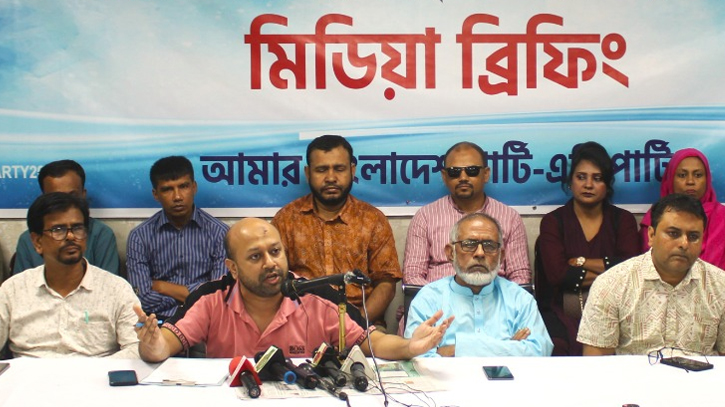
The briefing noted that the unplanned development like so called all-weather roads built through the large waterbody, haor, in Itna-Ashtogram-Mitamoin and Cholon bil, caused serious crisis in natural life cycle. Filling up riversides, connecting canals and tributaries are also cause for concern. AB Party is also disappointed by the response from local administration.
Lack of dry food, clean water, electricity, loss of crops and cattle have consequences for the flood victims. Armed forces can be deployed, where necessary, to reach remote areas for aid distribution. Long term rehabilitation is needed to regenerate the lives and livelihoods post-flood.
Messenger/Sumon

